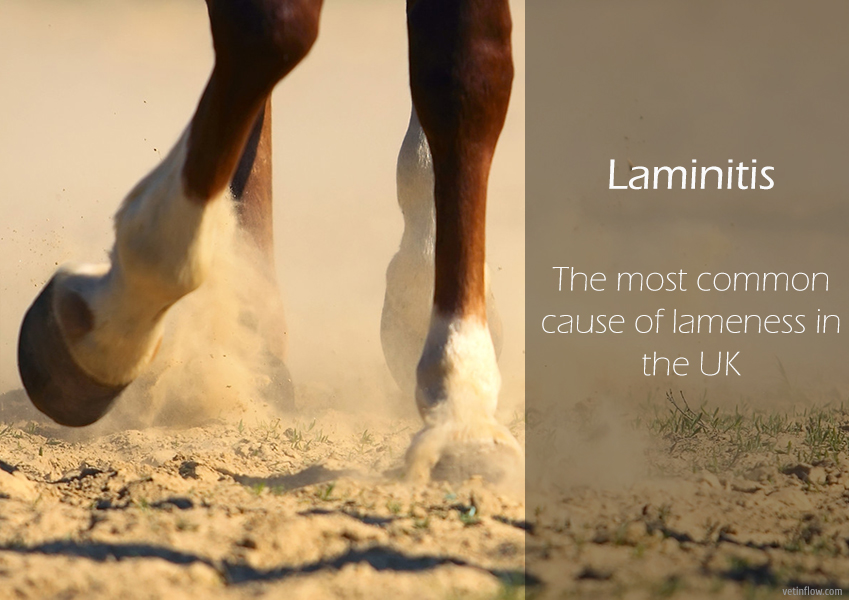
Laminitis - The most common cause of lameness in the UK
Laminitis is an inflammation of the laminae (the inner layer of the hoof wall) and it is one the most common causes of lameness in horses in the UK. Horses of any size, age and breed can suffer from this painful condition, although people usually associate it with overweight ponies.
There are several factors that contribute to this debilitating disease. Heavy breeds and obese horses tend to be more susceptible as well as horses that are fed diets containing high carbohydrate content (like grain). Since obesity is a growing problem, laminitis is becoming more and more common.
Laminitis can also occur following sudden changes in their diet like consuming excessive amounts of fresh grass (pasture induced laminitis), intense exercise on hard surfaces or following other diseases like metritis, colic, Cushing's disease, Equine Metabolic Syndrome and severe infections. Horses that are supporting most of their weight on one leg due to injury to the other leg may develop this condition as well.
There are two forms of laminitis: acute laminitis and chronic laminitis. In the acute form of laminitis the animal is uncomfortable and shows the firsts signs of this disease. In the chronic form of laminitis (founder) there are already structural changes in the internal anatomy of the hoof: the pedal bone sinks and rotates.
Clinical signs include lameness, warm hoof walls, increased digital pulse, pain in their feet, abnormal gait (heel before toe), an altered stance (with their weight shifted to the hind limbs with the forelimbs stretched out in front (to ease the weight off their feet), reluctance to move and in severe cases, panting, sweating and trying to lie down (which can be confused with colic).
If you notice any of these signs please call your vet as soon as possible. Early treatment is critical to reduce the chances of chronic laminitis (founder) and it is very important to treat any other underlying disease that may contributing to the onset of this condition!
Would you like to know more about horses? Check our Equine Courses:
Equine courses
Read the previous article: Unbelievable sniffers!


